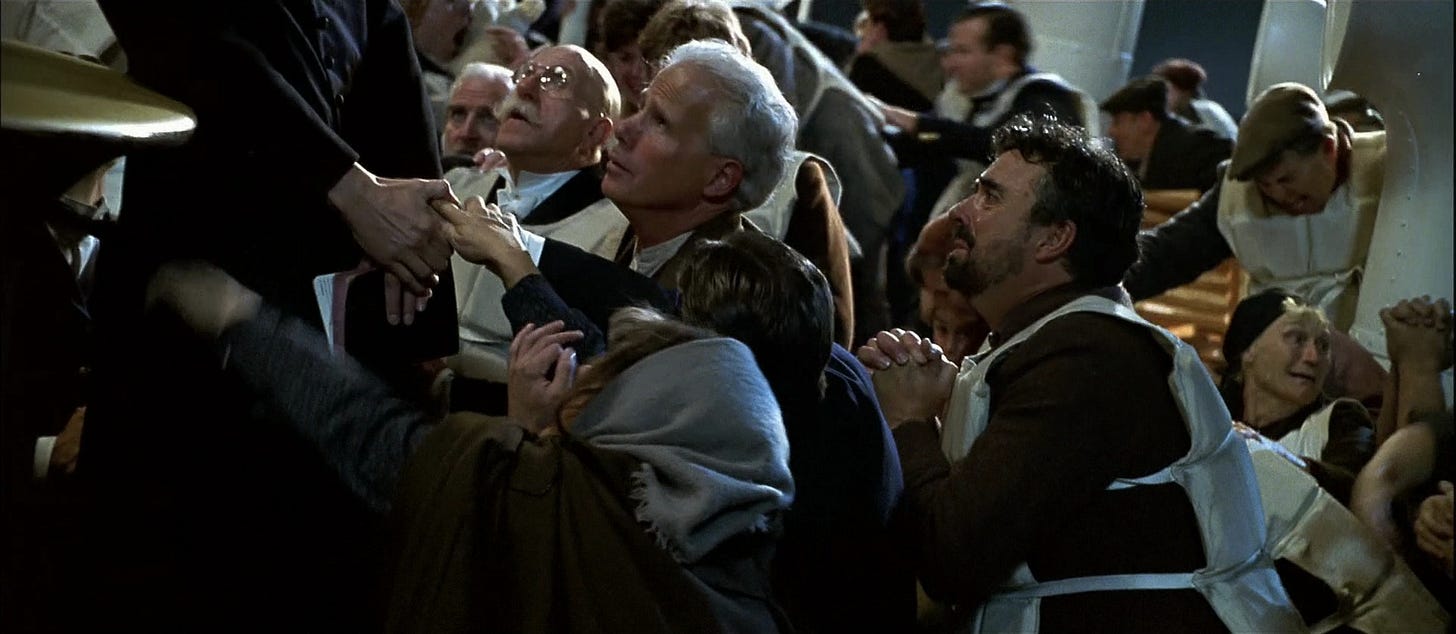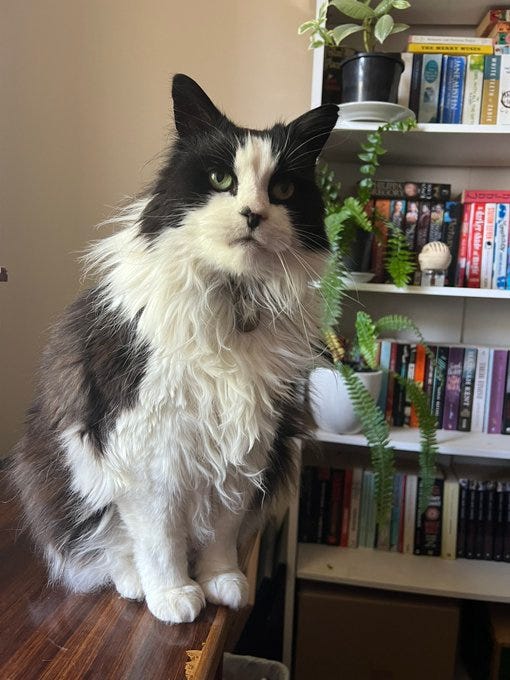It started exactly eight years ago.
The first edition of my e-newsletter The Flash appeared in inboxes on 19 November, 2014. Back then it was very structured, almost like a mini-publication.
It contained links to my latest freelance publications; info about my upcoming speaking gigs and media appearances; updates on my works-in-progress; mini-reviews of books, films and TV shows; links to cool things I found online; and a picture of my beautiful cat Graham.
A lot of moving parts, basically. It was exhausting, and took me so long to produce. Even though it was sent only monthly, I just ran out of stamina for it. The November 2015 edition is still sitting in my MailChimp drafts.
You’re reading this email now because you signed up to receive The Flash – perhaps from my website (which also sorely needs a redux), my Twitter bio or my email signature. You might have subscribed so long ago that you’ve forgotten you did, which is why I’m giving you a heads-up now.
The new Flash won’t be like the old one
This time around, The Flash is going to be looser: more ‘stuff I’ve been excited about lately’. I don’t want to promise any particular structure or timetable, because I don’t want to lock myself into something that feels like a chore.
Instead, I want it to feel like a chat with me. Rereading Emily of New Moon, I’m struck by the way Montgomery always says the flash “comes” to Emily. It’s something that shows up and galvanises her.
I’d like The Flash to galvanise you, too. I want to show you my own “wonderful, mysterious things of persistent beauty”.
Expect an email roughly every fortnight. I’m generally into:
nature, plants and animals;
robots, AI and cyborgs;
the histories and habits of clothing;
lore, ritual and magical thinking;
cultural memory and nostalgia;
dark academia and the lure of privilege;
digital senses and aesthetics.
It’s sort of absurd to be listing this stuff like a menu. I can’t say for sure what will be in The Flash. I might also want to talk about work-related stuff – film, TV, books and writing, the media – but in a digressive, explorative way.
Why am I bringing it back now?
The death of Twitter, basically. It’s not dead yet, but many people reckon it’s close now. Yesterday on Twitter was wild and eschatological. So many Titanic jokes.
Twitter is my favourite social platform: the first thing I check when I wake up, and often the last thing I read before falling asleep. Intellectually it’s been a vital space for me to learn things, and to ponder ideas by writing in real time. But to be honest, I often feel as though I’m shouting down a well when I share my thoughts there.
For a while yesterday I listened in to a strange virtual wake for Twitter on Spaces, the platform’s audio chat feature that never really took off. (Well, maybe it did, but not really among people I know.) It felt uncanny and enlivening to be sharing a real-time moment among so many of the platform’s power users.

People were grieving the loss of Twitter as a ‘town square’; but as Thomas Klikauer argues in his entertainingly pessimistic 2021 book Media Capitalism, the democratic functions of media have been totally captured by capital, and the public sphere is thoroughly refeudalised. Klikauer mostly has corporate capitalism in mind, but we are also at the mercy of oligarchs. Capricious individuals with infuriating wealth.
I saw some sweet summer Americans desperately wishing Twitter could be nationalised. Americans often forget people from other places use Twitter too. No Yanks on the thread.
Even Annalee Newitz, whose ideas I enjoy, indulges in a similar fantasy in their newsletter:
Honestly, I’m still holding out hope for a social network that’s run more like NPR, CBC, or PBS – these are organizations run on a public broadcasting model, partly funded by donations and partly by governments. Or perhaps Twitter could be run by a nonprofit like Wikimedia. The point is, a public square should not be a for-profit enterprise. I mean, the word “public” is right there in the name. Let’s build some social media platforms for public benefit, not to line the pockets of billionaires.
What I’ve been thinking is more like what Brent Simmons writes:
The internet’s town square should never have been one specific website with its own specific rules and incentives. It should have been, and should be, the web itself.
The whole Twitter meltdown has made me focus on what I enjoy about writing and online sociality. I’m hoping that the email newsletter format will help me do the kind of writing I enjoy, for people who are here for it.
Also, Substack has a comments function, so if you want to pick up on anything I mention in The Flash, you can do that.
This is still a bit of an experiment
I know this might not be what you signed up for, ages ago, and it’s totally fine if you decide to unsubscribe. But I hope you’ll stick around.
If you want to find me on other platforms, I’m on Twitter (of course), Mastodon, Instagram, and I’m thinking of staging a return to Tumblr, because truly I am a blogger at heart.






Hi Mel - great to see this in my inbox. I abandoned twitter a year ago for similar reasons to the ones you mentioned. I have missed a lot of the smart and funny conversations even as i never regretted my new twit-free life so if is good to know i’ll be hearing from you thru this more often.
I particularly liked you simmons quote about the web. i have been thinking something similar for a while, yearning for web1.0 like an old bastard gen x.
i am going to try to track down that Media Capitalism Hegemony in the Age of Mass Deception book in some library somewhere. it sounds like a crack!
hope you are well this fine morning.